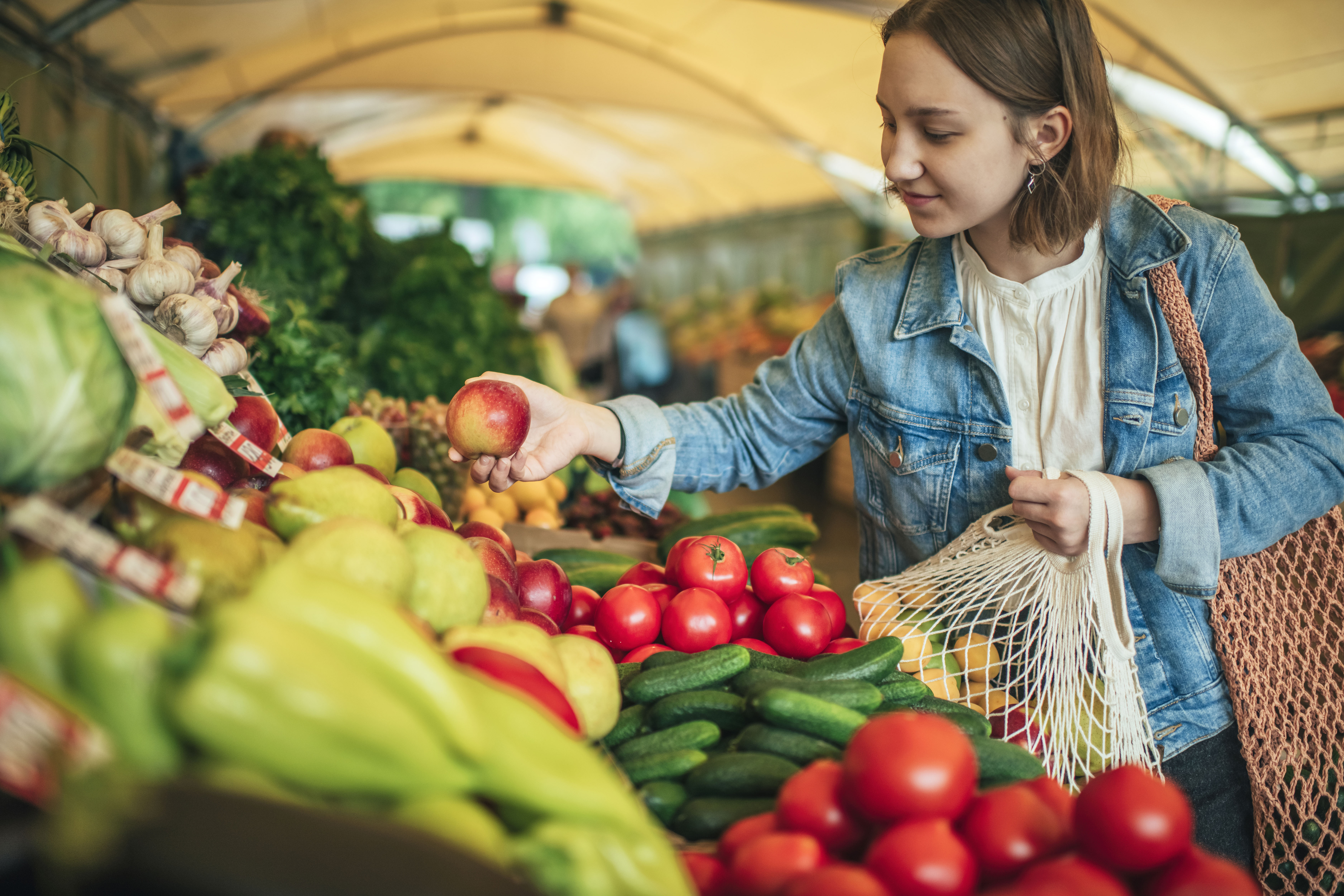Shopping at the Farmers Market with Food Safety in Mind

Going to the farmers market is a weekly staple for many, and markets are available across the country both seasonally and year-round. Farmers markets offer a wide variety of fresh local products like fruits, vegetables, meats, cheeses and beverages. When shopping at the farmers market, it’s important to keep food safety in mind to avoid foodborne illness from tagging along.
Temperature Matters
Some farmers markets are only available seasonally in warmer months, and bacteria that cause foodborne illness love warm weather. When temperatures are above 90 degrees F, perishable foods only have one hour before bacteria can multiply to dangerous levels and make food unsafe.
When shopping at the farmers market, look for sellers that display perishable items like raw meats and soft cheeses on ice, in a cooler, or with refrigeration. Consider bringing an insulated bag or cooler with cold sources that will keep your perishables at a safe temperature below 40 degrees F during the time it takes to finish shopping and travel home (especially if it is a hot day). Examples of cold sources include ice, frozen gel packs, or frozen beverages. When possible, shop for perishable items last.
Meat and Poultry
Raw meat and poultry must be refrigerated for safety. Otherwise, foodborne illness bacteria can multiply to dangerous levels and make you sick. Only purchase raw meat and poultry at the farmers market if they’re being kept cold by the seller.
Once purchased, place raw meat and poultry in a separate bag from ready-to-eat items, like fruits and vegetables, to avoid cross-contamination of harmful bacteria that cause foodborne illness. Juices from raw meat and poultry can sometimes leak from packaging, which can transport bacteria to our produce or other ready-to-eat farmers market goodies if not separated. After touching packages of raw meat and poultry, wash hands with soap and water or use hand sanitizer with at least 60 percent alcohol content.
Produce
It’s important to choose fruits and vegetables that are not bruised or damaged, because these can provide an environment where bacteria multiply and thrive. Whole fruits and vegetables can be displayed without refrigeration at the farmers market, but perishable produce like strawberries, lettuce, herbs and mushrooms should be refrigerated once home. Pre-cut or peeled fruits and vegetables need to be refrigerated for safety, so only purchase if they are stored on ice or refrigerated at the market. Before consuming, all produce should be rinsed thoroughly with running water.
For more information on food safety for produce, visit the U.S. Food & Drug Administration’s factsheet Selecting and Serving Produce Safely.
إذا لم يتم تحويلك تلقائيًا، انقر هنا.

